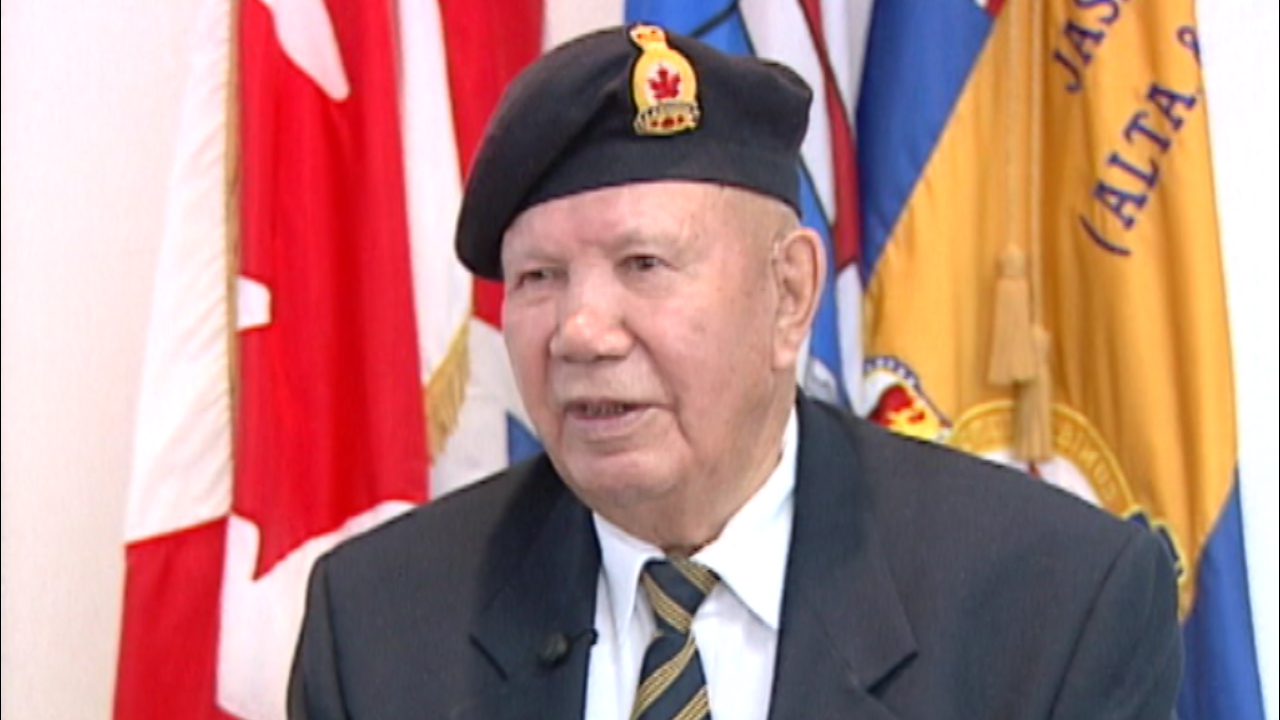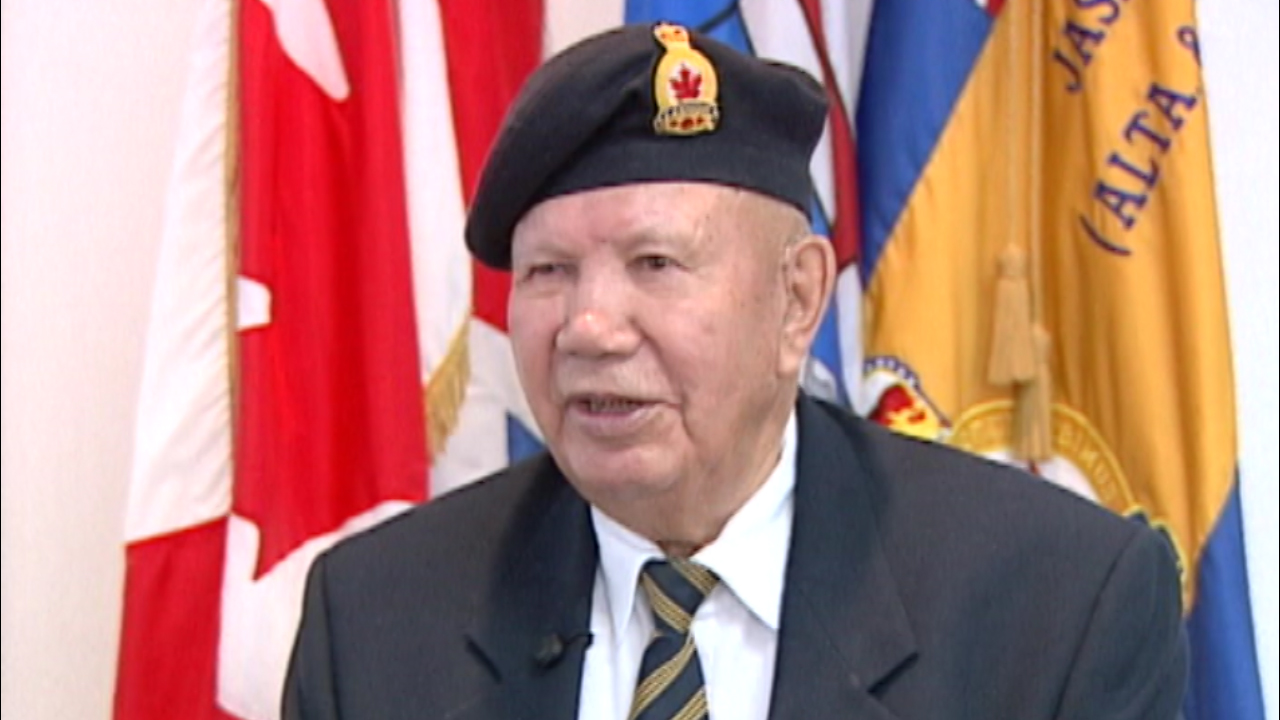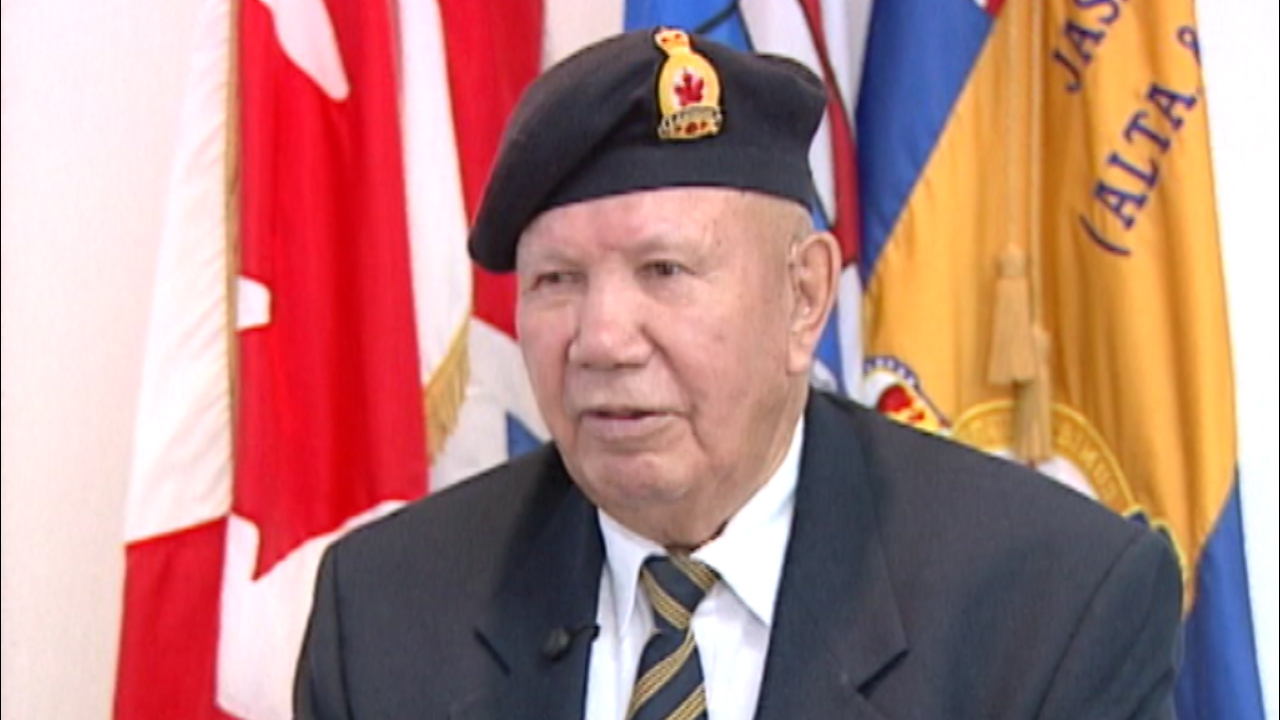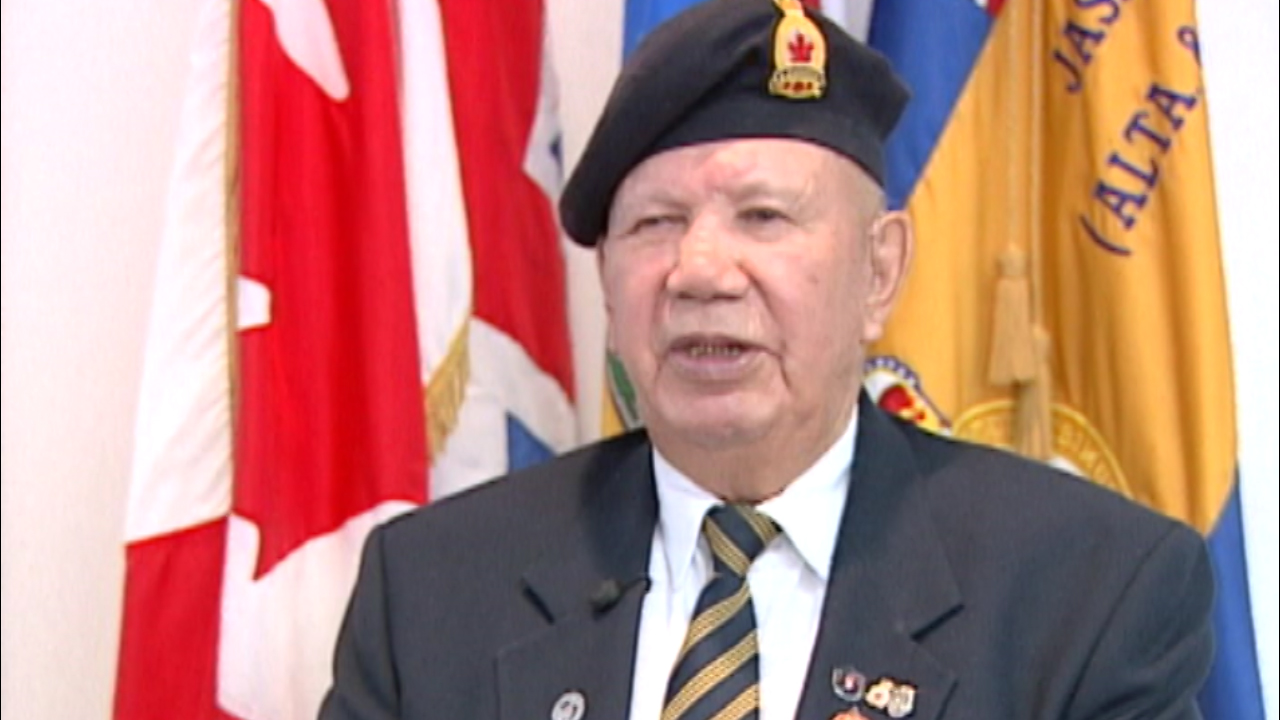Last Days of War. Remembering Comrades.
Heroes Remember
Last Days of War. Remembering Comrades.
Transcript
We went in there and some of the prisoners they took was only
kids about 14 - 15 years old and Germans. Farther down we
got there was older guys. I remember this Dutchman coming up
and telling us there's some Germans in there, (inaudible) I went
there and those guys there were about 60 or 70 years old and
they were sure glad to give up. And ah, and we had to build a,
blow a few roadblocks on the road, that's all they had roadblocks
and mines, so we cleared them. And I remember I was gonna,
there was a roadblock there and I got the boys together I said,
"We're going to blow this base" and the Colonel, West Novies,
he says, "You guys take it easy now, I know, I know what
your platoon is like." He says, "Save them houses over there."
He says, "Don't break any windows." And I says, "OK.." You know,
cause he knew what these demolition guys got in there, they'd
go through all right, but ah, they didn't want us to blow up
any of them houses, and ah, ah we went up there, and we went on
them (inaudible) carriers and they took ah, these, these Germans
started giving up and a Dutchman came over and he said there's a
a Colonel and everything over in the house. So we went over
and I remember this guy I was with, he looked at the Colonel and
the guy, guy had a nice sheepskin jacket. He said, "Bob, that'll
just fit me." I says, "Go ahead, take it," and it was things
like that you don't forget. I had to laugh at him because
he said, "That just fit me." And then we went to one place
the Germans blew one little bridge there and we cleared that,
and we came back and that's where the war ended. And we're
in this center for about ten days. You could see the vehicles
over there on one side, some of the people walking. Then when the
war ended we headed for Rotterdam and the Germans are coming and
we're going. The guys are trading wrist watches and everything
and the people was so happy the war was ended. We got into
Rotterdam, and of course we had to eat, we had a kitchen and
people are cooking, cooks are there and everything. And the
people, the girls, kids and everything was coming. We couldn't
eat, because we had to give them food, ya know. We went past
that town and got a billeted in a little town there. I'm telling
ya, them people were happy. One of the nicest people, I think
I've met is those Dutch people.
Interviewer: How difficult was it for you to say goodbye to
those men that were with you?
Well it's hard you know, guys you get attached to, guys you
are with in action two or three, a couple of years two months.
You know it's hard, there just like a brother to you, you know.
Cause everything we done we shared, ya know. We had to in order
to survive, and ah, and no matter what somebody had done, he
was your friend, that's all.
Interviewer: Is there a bond between you men even today?
Oh yes, there is. Ya know that something I'll never forget.
Army life was one of the best things that ever happened in my
life because discipline is something I'll never forget.
Even today if I met one of my friends, if he was broke I'd help
him, cause I know he'd do the same for me and that's one reason I
went back to Holland. To lay a wreath because I remember.
I remember going through the, the graveyard there and I was
looking at the, you know the ages, looking for people I knew.
There was some there, 18, 19, 20. If you found anybody 21 that
was old and it made me think because, how lucky I was and ah
and that's why I went over there. I wanted to go over.
And because I know they'd have done the same for me.
That's how, how closely ya get knitted to people you know.
Description
Mr. Berard remembers the last days of the war, in Holland and also reflects on how difficult it was for the men who had served together for so long to go their separate ways at the end of the war.
Robert John Berard
Robert John Berard was born in 1921 in Tofield, Alberta, son of a farmer, with five brothers and three sisters. In 1941, he enlisted in the Edmonton Fusiliers and was sent to Scotland in June 1942 as part of reinforcements for the Regina Rifles. He joined one of his brothers with the Royal Canadian Engineers in Sicily.
Meta Data
- Medium:
- Video
- Owner:
- Veterans Affairs Canada
- Duration:
- 05:42
- Person Interviewed:
- Robert John Berard
- War, Conflict or Mission:
- Second World War
- Branch:
- Army
- Units/Ship:
- Royal Canadian Engineer
Related Videos
- Date modified:






